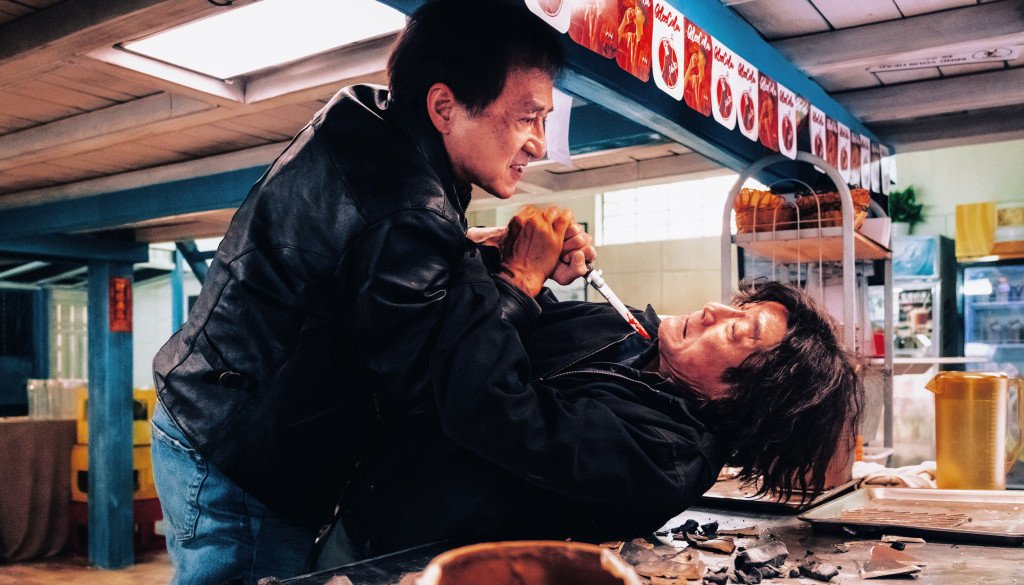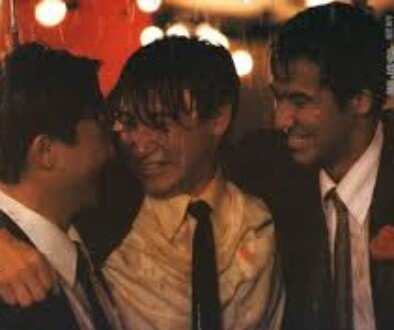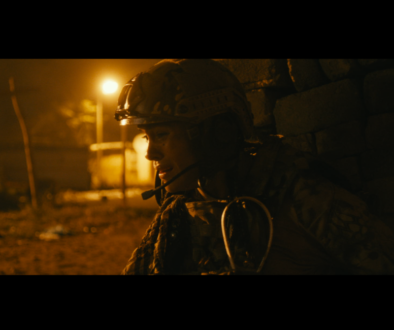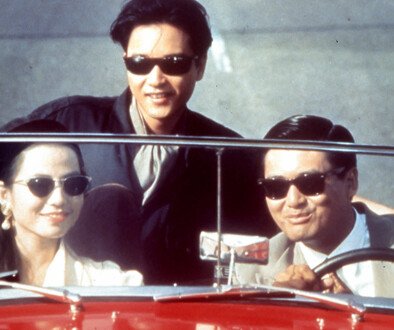THE SHADOW’S EDGE Review: Jackie Chan Levels Up For A Scintillating, No-Nonsense Crime Thriller
I can’t much remember a time in recent memory apart from The Foreigner another director was able to truly keep my attention for more than a handful of moments while watching a film featuring Jackie Chan. This isn’t to scale back what I previously iterated with Karate Kid: Legends, but I just love a really good, enticing thriller that thinks further beyond trying to so hard to sell its biggest star for it to be bankable to the point of gimmicky.
This is all to say that as much as I enjoyed Larry Yang’s Ride On, I’m even more approving of their latest pairing together with surveillance thriller, The Shadow’s Edge, which borrows inspiration from Yau Nai-Hoi’s 2007 film, Eye In The Sky. Yang’s film also joins Chan’s talents with that of Tony Leung Ka-Fai in one of the saltiest, most meaty villain roles he’s ever played; His performance as the leader of an elusive band of high-tech thieves is really one for the books, which is also one that certainly lives up to what makes a Jackie Chan action film worth watching, specifically being Chan himself.
Carried by a raft of talents such as Zeng Zifeng, Lang Yueting, and Wang Ziyi, the film also bolsters a crop of talents like Li Zhekun, Wang Zhenwei, and SEVENTEEN member Jun. For this, we get a Hong Kong cop procedural that forces law enforcement in all its concurrent advancements in, and adaptations of A.I. in its crime-solving framework to go back to basics in an effort to nab “The Shadow” (Leung) following two successful robberies that foiled every effort by the police to catch them.
That effort sees burgeoning detective He Qiuguo (Feng) reluctantly aiding in bringing in ex-cop-turned-retiree Huang Dezhong (Chan) who, for what it’s worth, hasn’t lost a step when it comes to tracking and tracing. The department forges Huang as the leader of a new team responsible for staking out The Shadow and his team, who also happen to be his adopted godsons from a heyday orphange. As Huang and his team make progress, however, it’s only a matter of time before the integrity of both forces are truly tested, as internal conflict and high drama set the stage for one explosive and bloody showdown after the next.
Amidst the stark dichotomy set between Chan and Leung is a narrative synchronicity as men well up in age and while able to lead the charge in their fields, still struggle to keep up with their younger successors; Huang is focused on staying on mission while simultaneously working to repair old ties with He following the death of her father during a stakeout many years earlier. With “The Shadow,” you learn what’s at stake with a semblance of a family that, while still loving and caring for each other, is still a group slowly coming apart at the seams with the godsons’ and their ideations on how to handle their father’s unnerving behavior.
Yang crafts an emotionally compelling drama out of both branches that balances things out aptly while delivering a film that still stands on business, catering to action fans in the best way with sumptuous set pieces. You also get a useful application of law enforcement tech as a viable supporting character designed smartly for its timed uses to the film’s benefit, leaving the rest to fall prominently on our human characters to carry things home.
Celebrated actors Yu Rongguang and Melvin Wong also manage to eke in some screentime much to the delight of Hong Kong and Chan fans alike. Yang’s mix of Cantonese and English dialect along with a spinkle of Japanese doesn’t feel like a shoehorned effort at making this Hong Kong film palatable to Western sensibilities, and feels plentily genuine in its writing and overall presentation.
Action and stunt sequences by Su Hang and Lee Huang aim to please, serving up big setpieces along with ample uses of green screen that don’t necessarily work against the film’s intent. The actors look amazing, including Zeng whose unassuming build would have you easily fooled with a role that’s hellbent on proving herself to some of her naysaying colleagues. She’s an absolute joy on screen as someone who can carry drama and action and I would love to see more from her any day. Emphatically, the same goes for Leung, a longstanding screen prescence whose performance here should make him a ripe and qualifiable candidate for the most violent and bloody Timo Tjahanto escapades.
Topping it all off is the enduring starpower of Chan who still proves he can tussle with the best and the rest. I’m exasperated by a lot of the bargainous stories he’s appeared in like the forgettable CZ12, Vanguard and Kung Fu Yoga to name a few, and A Legend hardly enticed me as did Chan’s continued use of a digitally de-aged version of himself, so to see his character’s younger iteration played organically by a different actor feels refreshing.
Indeed, not all of Chan’s works of late tend to raise the bar as much as one hopes, but films like this one sure make it easier to give credit where its due. There’s a level quality and depth in The Shadow’s Edge that Yang taps into, specifically in his ability to tell a story that doesn’t cast another shadow over the main star’s legacy, and that’s worth something.
A version of this review can also be read at Jackie Chan Deutschland.
Native New Yorker. Been writing for a long time now, and I enjoy what I do. Be nice to me!






THE SHADOW'S EDGE Ekes Out On Digital, 4K UHD And Blu-Ray For February UK Release | Film Combat Syndicate
December 12, 2025 @ 11:11 am
[…] film was certainly one of the few better Chan films late. I said as much in my review as well as Joe Hallett who gets the pullquote treatment you can view in the footage and gallery […]